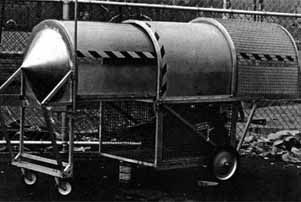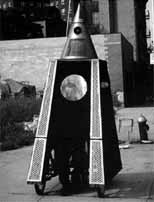(consultant)
| intervention |
| location |
| critical text |
| project |
| artist statement |
| urban situation |
| scale |
| wodi em sp |
| na mídia |
| interventions |
| arte/cidade - zona leste |
| arte/cidade |
|
These vehicles and equipment combine critical methods of analysis and instrumentality, to assure the possibility to assure some emergencial operations of survival for dislocated populations. The urban contemporary nomads - the migrants, homeless and foreigners who transform the cities when inserting their histories and activities in the urban configuration and discourse. They are tactics of survival, developed from the characteristics of each terrain, that also aim at to detach the voice, experiences, and presence of those that have been silenced and marginalized from society. Devices that breach the current perception of the excluded, that display the scandalous situation they are submitted and, over all, restore a dialogue between its operators and those that have a place in society, allowing to the dislocated to cross the economic and social boundaries that divide the city. In the complexity of the contemporary urban context, these equipment become a device of mediation and communication: design as tactical media, against the strategical character of the victorious history. The zones, spaces and objects that the migrants invent are territories of play and irony, where the estrangement operates to create language and to design a new place. Krzysztof Wodiczko, Critical Vehicles, Cambridge, MIT Press, 1999.
  Critical Vehicles built in the 1990s |